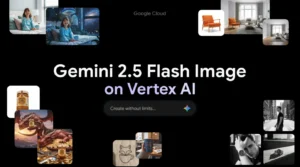5 Best AI-Powered Tools For Inventory Management Systems
If you’re managing inventory for a growing business and tired of reactive stock management… We get it – you’re juggling multiple suppliers, unpredictable demand, and the constant fear of running out of your best-sellers. AI inventory management isn’t just a fancy buzzword anymore – it’s become essential for businesses that want to stay competitive. Imagine cutting your inventory costs by 30% while improving customer satisfaction. Let’s explore the best AI-powered tools for inventory management that make this possible.
Netstock
When it comes to AI-powered demand forecasting, Netstock stands out as a game-changer for small to mid-sized businesses. This tool takes the guesswork out of inventory planning by using sophisticated algorithms to predict exactly what you’ll need and when you’ll need it.
Key Features
Netstock’s automated replenishment system is where the magic happens. The platform analyzes your historical sales data, seasonal trends, and market conditions to create incredibly accurate demand forecasts. You’ll get automated alerts when it’s time to reorder, and the system even suggests optimal order quantities.
The inventory optimization engine continuously monitors your stock levels and identifies slow-moving items before they become a problem. This means you can run promotions or markdowns at just the right time to clear excess inventory.
Pricing and Plans
Netstock offers flexible pricing that scales with your business size. While specific pricing isn’t publicly available, most small to medium businesses can expect to invest in the mid-tier range for comprehensive AI inventory management features.
Pros and Cons
Pros:
- Excellent demand forecasting accuracy
- Easy integration with existing ERP systems
- User-friendly interface that doesn’t require technical expertise
- Reduces both stockouts and overstock situations
- Great customer support
Cons:
- Can be pricey for very small businesses
- Some advanced features might be overkill for simple operations
- Initial setup requires time investment
Best For
Netstock shines for wholesalers, distributors, and retailers who want to automate their demand planning without getting bogged down in complexity. It’s particularly effective for businesses dealing with seasonal fluctuations or unpredictable demand patterns.
Zebra Technologies
Zebra Technologies brings real-time inventory tracking to a whole new level with their AI-driven RFID and analytics platform. If you’re running a large retail operation or logistics company, this is the kind of technology that can transform your entire supply chain.
Key Features
The AI-based analytics engine processes data from RFID tags, barcode scanners, and IoT sensors to give you complete visibility into your inventory movement. You’ll know exactly where every item is, how fast it’s moving, and when you need to reorder.
Their predictive analytics capabilities go beyond basic forecasting. The system can identify patterns in customer behavior, seasonal trends, and even external factors that might impact demand.
Pricing and Plans
Zebra Technologies typically works with enterprise clients, so pricing is usually customized based on your specific needs and scale. Expect a significant investment, but the ROI for large operations is substantial.
Pros and Cons
Pros:
- Incredible accuracy in inventory tracking
- Real-time data updates across all locations
- Robust integration capabilities
- Excellent for large-scale operations
- Advanced AI analytics
Cons:
- High upfront costs
- Requires technical expertise for implementation
- Might be overkill for smaller businesses
- Complex setup process
Best For
This platform is perfect for large retailers, logistics providers, and distribution centers that need industrial-strength inventory tracking. If you’re managing thousands of SKUs across multiple locations, Zebra’s technology can be a game-changer.
Useful Articles:
Oracle NetSuite Inventory Management
Oracle NetSuite offers a comprehensive cloud-based inventory management solution that’s built for businesses ready to scale. This isn’t just inventory software – it’s a complete ERP system with AI-powered inventory optimization at its core.
Key Features
The AI demand planning module integrates seamlessly with your financials, sales, and purchasing data to create incredibly accurate forecasts. You’ll get automated order processing that considers lead times, supplier reliability, and seasonal variations.
NetSuite’s multi-location inventory tracking gives you real-time visibility across warehouses, retail stores, and distribution centers. The system automatically suggests inventory transfers between locations to optimize stock levels.
Pricing and Plans
NetSuite pricing starts around $99 per user per month for basic functionality, but most businesses using the full inventory management features will be in the $200-400 per user range. There’s also a base platform fee to consider.
Pros and Cons
Pros:
- Complete ERP integration
- Excellent scalability
- Strong financial reporting capabilities
- Cloud-based accessibility
- Comprehensive feature set
Cons:
- Can be complex to implement
- Higher cost for full functionality
- Steep learning curve
- May require customization
Best For
NetSuite is ideal for growing businesses and enterprises that need both inventory management and comprehensive business management capabilities. It’s particularly valuable for companies with multiple locations or complex supply chains.
Logiwa WMS
Logiwa WMS specializes in AI-powered warehouse automation and is designed specifically for e-commerce businesses and third-party logistics providers. This platform turns your warehouse into a smart, efficient operation that practically runs itself.
Key Features
The predictive analytics engine doesn’t just forecast demand – it optimizes your entire warehouse operation. The system suggests optimal product placement, predicts picking routes, and automates replenishment based on velocity and seasonality.
Logiwa’s multi-channel inventory synchronization keeps your stock levels accurate across all sales channels in real-time. Whether you’re selling on Amazon, Shopify, or your own website, everything stays perfectly synchronized.
Pricing and Plans
Logiwa offers tiered pricing based on order volume and features needed. Most e-commerce businesses can expect to pay in the mid-range for comprehensive warehouse management capabilities.
Pros and Cons
Pros:
- Excellent for e-commerce operations
- Strong warehouse optimization features
- Real-time multi-channel sync
- User-friendly interface
- Good customer support
Cons:
- Focused primarily on warehouse operations
- May not suit all business types
- Limited financial integration
- Requires warehouse management focus
Best For
Logiwa is perfect for e-commerce businesses, 3PL providers, and fulfillment centers that need to optimize warehouse operations and manage inventory across multiple sales channels efficiently.
Blue Yonder Luminate
Blue Yonder Luminate represents the enterprise-level solution for end-to-end AI-powered inventory visibility. This platform is built for large organizations that need comprehensive supply chain optimization with advanced machine learning capabilities.
Key Features
The AI-powered demand sensing technology goes beyond traditional forecasting by incorporating real-time market signals, weather data, social media trends, and economic indicators. This creates incredibly accurate short-term demand predictions.
Blue Yonder’s autonomous supply chain capabilities can automatically adjust inventory parameters, trigger purchase orders, and even negotiate with suppliers based on predefined business rules and AI recommendations.
Pricing and Plans
Blue Yonder typically works with enterprise clients on custom pricing arrangements. Expect a significant investment, but the platform is designed to deliver substantial ROI for large-scale operations.
Pros and Cons
Pros:
- Cutting-edge AI technology
- Comprehensive supply chain optimization
- Excellent for large enterprises
- Advanced analytics and reporting
- Strong integration capabilities
Cons:
- Very expensive
- Complex implementation
- Requires dedicated resources
- Overkill for smaller businesses
- Long implementation timeline
Best For
Blue Yonder Luminate is designed for large enterprises, global retailers, and complex supply chain operations that need the most advanced AI inventory management capabilities available.
Comparison Of The Best AI-Powered Tools For Inventory Management
| Tool | Best For | Key Strength | Pricing Range | AI Capabilities | Real-Time Tracking |
|---|---|---|---|---|---|
| Netstock | Small-medium businesses | Demand forecasting | Mid-range | Automated replenishment | Yes |
| Zebra Technologies | Large retailers/logistics | RFID tracking | High | Predictive analytics | Yes |
| Oracle NetSuite | Growing enterprises | ERP integration | High | Cloud-based optimization | Yes |
| Logiwa WMS | E-commerce/3PL | Warehouse automation | Mid-range | Multi-channel sync | Yes |
| Blue Yonder Luminate | Large enterprises | End-to-end optimization | Very high | Autonomous supply chain | Yes |
After diving deep into these platforms, it’s clear that the best AI-powered tools for inventory management aren’t one-size-fits-all solutions. Your choice depends on your business size, industry, and specific needs. Small businesses might thrive with Netstock’s straightforward approach, while large enterprises will benefit from Blue Yonder’s comprehensive capabilities. The key is matching the tool’s strengths with your operational requirements and growth plans.







